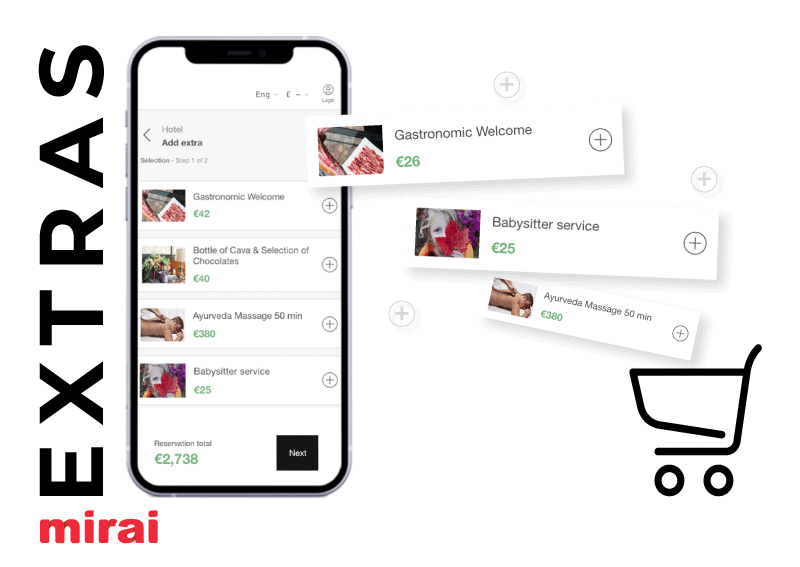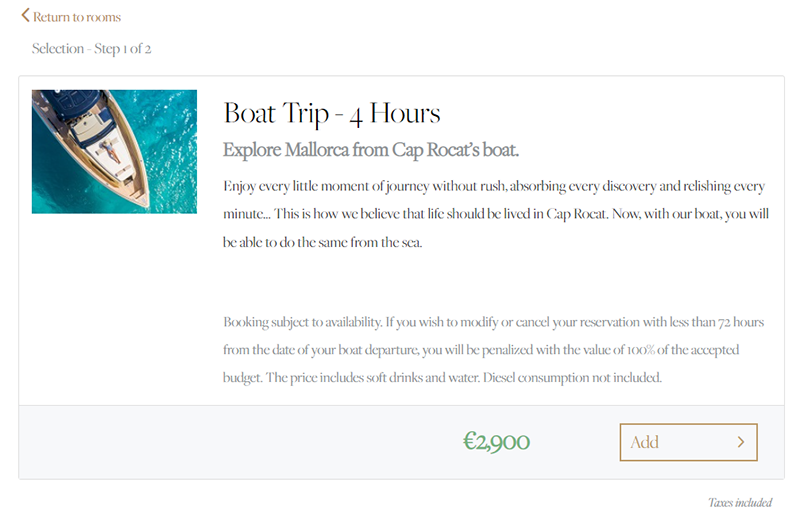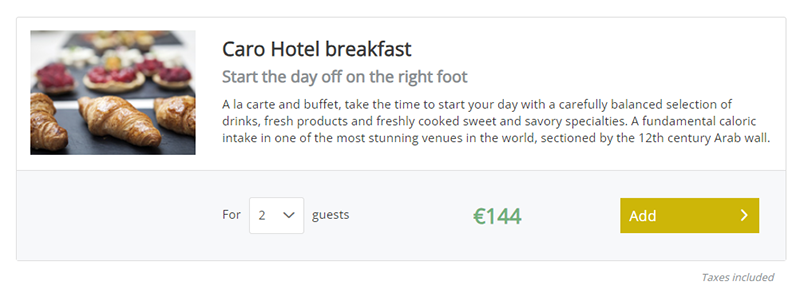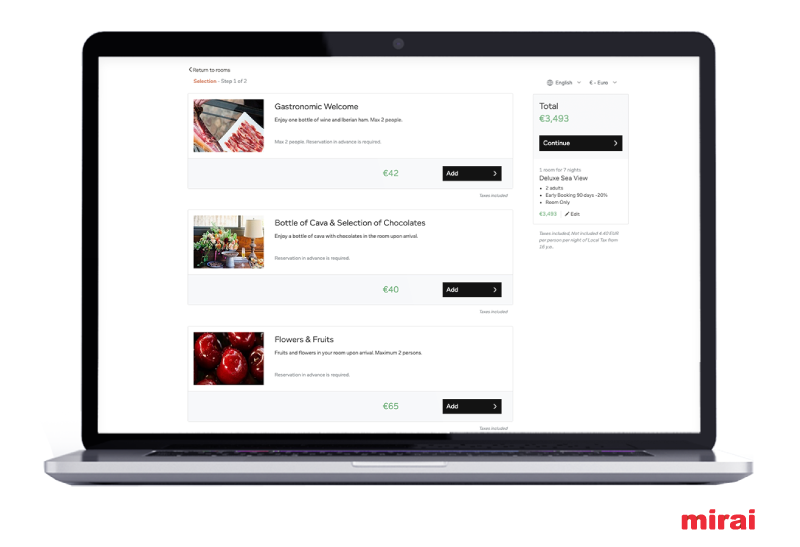En español, en français, em português.
Have you ever bought chocolate or chewing gum in a grocery store at the checkout? Sure you have, and so have your clients when buying a room in your online store or website. However, only a low percentage of hotels offer extras to their clients to purchase on top of the room. They are the exception. The rest may have beautiful online stores but with empty checkout lanes that prevent any incremental sale from happening. What was your decision? Was it consciously made?
In our experience, offering or not extras is another chapter of the battle between sales and operations. We’ll cover in this post why hotels should offer extras, some best practices on how to market them and finally some tips on how to streamline your operations.

Eight reasons why hotels should offer extras on their booking engine
- Increase your revenue. On average, extras increase 1.71% your average ticket value. Why would you conform with $100 when you can get $101.7
- Increase your profit even more. Extras tend to have very high margins so that increment in revenue becomes an even higher increase in profit down the bottom line.
- Differentiate your hotel from others. Details make the difference. Seduce your clients with something different that they will not find with your competitors.
- Make your value proposition of booking direct unique. Extras give more attractiveness to your direct channel compared to the OTAs, helping you generate a unique experience that would never have it somewhere else.
- Grow your loyal customer base. Offering exclusive extras or discounts only to your loyalty clients helps you build a stronger relationship with your clients and makes your loyalty program more attractive.
- Increase your customer satisfaction and review ratings. Guests are grateful when you facilitate things they, otherwise, would have had to find and buy somewhere else.
- Improve the performance of your campaigns. Bringing traffic to your website is expensive and every dollar you can increase your monetization will consequently increase the return (ROAS) of your campaigns.
- Prevent OTAs from stealing away your clients. OTAs, such as Booking.com and Expedia, already offer extras or ancillary services on top of the room to their users. You don’t see a dollar of this incremental revenue.
Ten best practices to market your extras
Once you are committed to offering extras, the next question is identifying what to offer and how to market it in the most successful way. Here are some best practices.
- Cover the basics. Start with simple but high demanded things or services. Ask your own receptionists what your guests demand when they check in. Bikes to rent, city tour tickets or something to eat at night. You have all that information already in your hotel.
- Be imaginative. Once your basics are done, think of some alternatives to surprise your guests. Something he or she does not expect but would love. Some examples would be a romantic dinner, wine tasting or outdoor activities.

- Inspire from what other hotels do. It does not need to be in your hometown but anywhere in the world. Extras pretty much work the same all around the world.
- Offer a maximum of six to seven options. Customers accept a few alternatives but not too many. Avoid long lists of extras and keep it simple.
- Make your extras sexy. Use attractive pictures and appealing descriptions to persuade your clients to buy. Use different font sizes and formats to highlight the keywords.

- Customize your pictures. Showing a true image of what you are going to deliver is always more appealing than generic pictures. This is especially important for boutique hotels.
- Use precise descriptions to avoid confusion. Never leave any question unanswered, especially about what’s included and what’s not.
- Price your extras accordingly. Your hotel category and ADR matter, and a lot. Don’t expect your guests to pay for water or coffee capsules when they are paying $400 per night, but do so when the price is $80.
- Show your price clearly, specifying if it’s a price per person (adult or child), night or room and whether taxes are included or not. Guests demand transparency and you’ll avoid problems at the reception.
- Don’t lose focus. Guests want rooms in the first place and some of them are open to buy extras. Don’t annoy those who don’t want to buy and let them skip extras and go to the checkout process easily and fast.

Nine tips to simplify your operations
For many hotels, a big challenge is the operational part. How am I going to do it? Streamlining the process of selling, being paid and delivering is painful and might sound like a lot of work. However, starting is not that difficult and many things can be done even by an independent hotel, needless to say by a larger hotel or group. Here are some tips.
- Start small and go big from there. Simplicity is key, so choose one to three simple alternatives that your guest values the most. Once you gain confidence, start testing other alternatives.
- Make sure all extras are pushed down to your PMS ideally in the right fields. Use the comments field as an alternative. Your receptionist would get crazy otherwise.
- Choose extras with a high margin. Low margin products or services may become a risky business for you. They are not worth it.
- Think of extras that will last for a long time. Forget food that gets spoiled fast.
- Take advantage of your restaurant if you have it. Fruit or a cheese platter can be painful if you have to manage it or very easy if you have a restaurant you can lean on.
- Periodically review your sales and make changes. Keep those extras that are working fine and scrap those that are not.
- Try to pay only when you have been paid. Spa or massage sessions are great alternatives but make sure you don’t pay your supplier until the guest pays you.
- Align cancellation policies. Non-refundable rates are much easier when selling extras. However, make sure you can cancel the extra if your guest canceled your room.
- Loop your supplier in the booking process. Automate the communication with your supplier so they are notified when there is a new purchase or cancellation of an extra.
Conclusion
It’s clear that offering extras can enormously help you drive more revenue and make it more direct in your double competition with other hotels and with the OTAs. Unfortunately, it’s not a free lunch as extras require addressing the operational part behind. In our experience, the pros clearly outweigh the cons, but it’s you who has to make that call.



